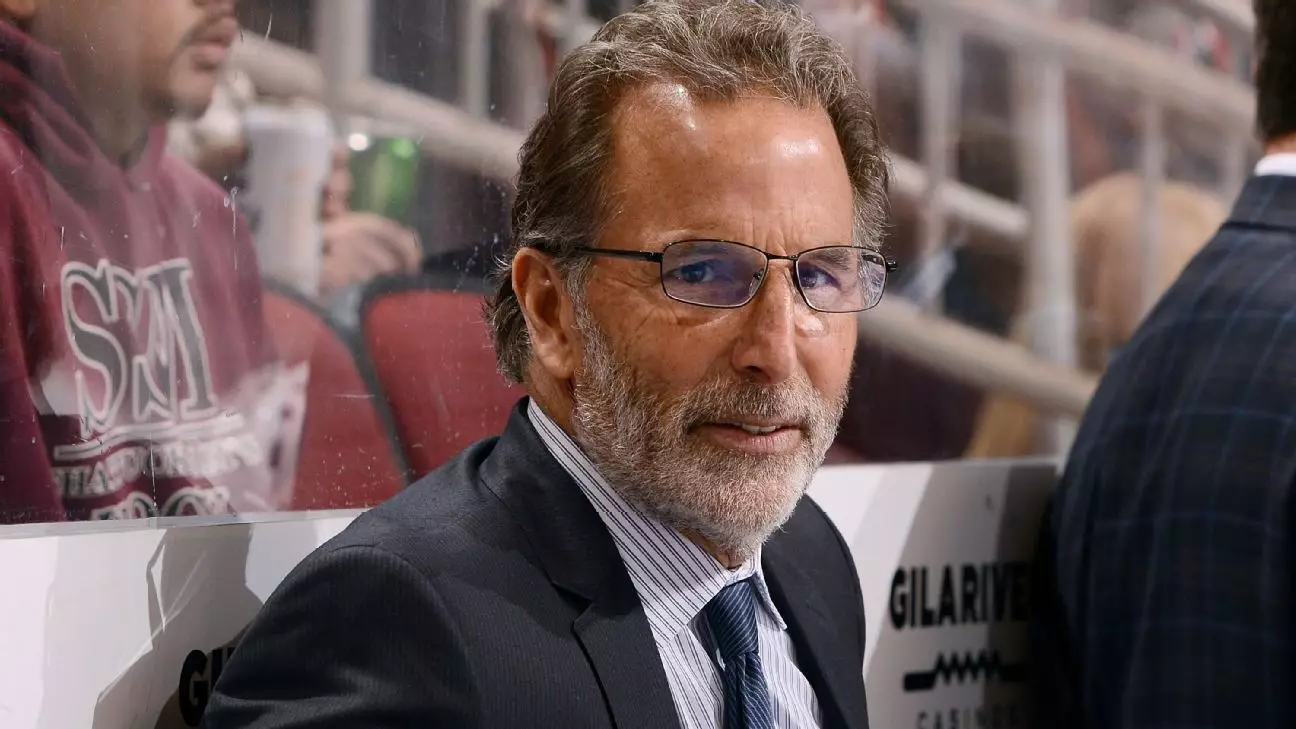In a bold and revealing move, Philadelphia Flyers general manager Daniel Briere acknowledged the complexities that characterized the relationship between the organization and head coach John Tortorella, leading to the latter’s firing. Briere’s candid appraisal serves not only as an indictment of Tortorella’s methods but also sheds light on the evolving vision of a franchise grappling with its identity. Tortorella, known for his fiery persona and uncompromising stance, had undoubtedly left an indelible mark on the team, but the clash of perspectives ultimately underscored the necessity for change within the coaching ranks.
While it can be beneficial for coaches to challenge their superiors and push for innovative strategies, when those challenges veer into contentious territory, an organization may find itself at a crossroads. In Briere’s account, he not only acknowledged the guidance Tortorella provided—an important factor in his development as a general manager—but also entertained the glaring realization that unyielding beliefs could hinder progress.
The Fallout of a Frustrating Season
Tortorella’s tenure in Philadelphia was punctuated by a wrath of disappointments, evident in the team’s record of 28-36-9 and the lowest points percentage in the Eastern Conference. Frustration was rampant as the Flyers plummeted to the depths of their league, missing the playoffs for yet another year. Recent performances, which included a humiliating 7-2 defeat to the Toronto Maple Leafs, positioned Tortorella’s coaching strategies under intense scrutiny. His remarks post-defeat, indicating he was uninterested in navigating a challenging season, resonated as a clarion call for change; an unwillingness to adapt in the face of adversity does not resonate well in the world of professional sports.
For a team seemingly in disarray, it appeared that the continual losses were not merely statistical setbacks but emotional anchors weighing down the players’ motivations. Tortorella’s position became increasingly precarious as pressure mounted from management, analysts, and, arguably most importantly, the players.
A Leadership Reassessment
With Tortorella’s exit, interim head coach Brad Shaw was swiftly brought in to lead the struggling Flyers. His initial success—a victory over the Canadiens, breaking a six-game losing streak—demonstrates an immediate impact that may reverberate throughout the team. The key question moving forward is whether Shaw can effectively harness this momentary surge to instigate a renewed sense of purpose among the players. By recognizing their potential amid a tumultuous season, Shaw might invigorate a roster that had become stale under Tortorella’s heavy-handed approach.
Change is often daunting, especially in the realm of sports, where team dynamics can drastically shift with the introduction of new leadership. Yet, Briere seemingly embraces this uncertainty with the intention of turning the page. “I feel at this time it’s rock bottom,” he observed, asserting a clear desire for improvement. For the Flyers, this moment represents not just a change in strategy, but a cultural shift away from a rigid system toward one that might better align with the youthful energy thriving within their roster.
Players’ Perspectives on the Shift
The shockwaves of Tortorella’s dismissal echoed among the players, none more so than forward Scott Laughton, who expressed his astonishment at the sudden decision. Such reactions underscore the complexity of team dynamics; the emotional fluctuations of players can significantly impact performance on the ice. Moreover, the ensuing managerial upheaval sparks inevitable reflections on accountability and vision within the team.
Meanwhile, praise for Tortorella’s contributions toward player development does not go unnoticed. Briere acknowledged the coach’s efforts in fostering talent, particularly with emergent rookie Matvei Michkov. Such acknowledgment reflects not just on Tortorella’s capability but also on the franchise’s need to balance strict coaching with a supportive environment conducive to player growth.
As the Flyers transition into this new chapter, they face the pressing challenge of selecting a new head coach—one who can inspire yet connect with both seasoned veterans and promising youngsters alike. This balance may prove crucial as Briere navigates the delicate waters of rebuilding while avoiding further discord in the locker room.
The immediate future may be uncertain for the Philadelphia Flyers, but the willingness to embrace change, acknowledge past shortcomings, and redirect their focus suggests a willingness to forge a brighter path—one that could lead back to glory in the NHL.

